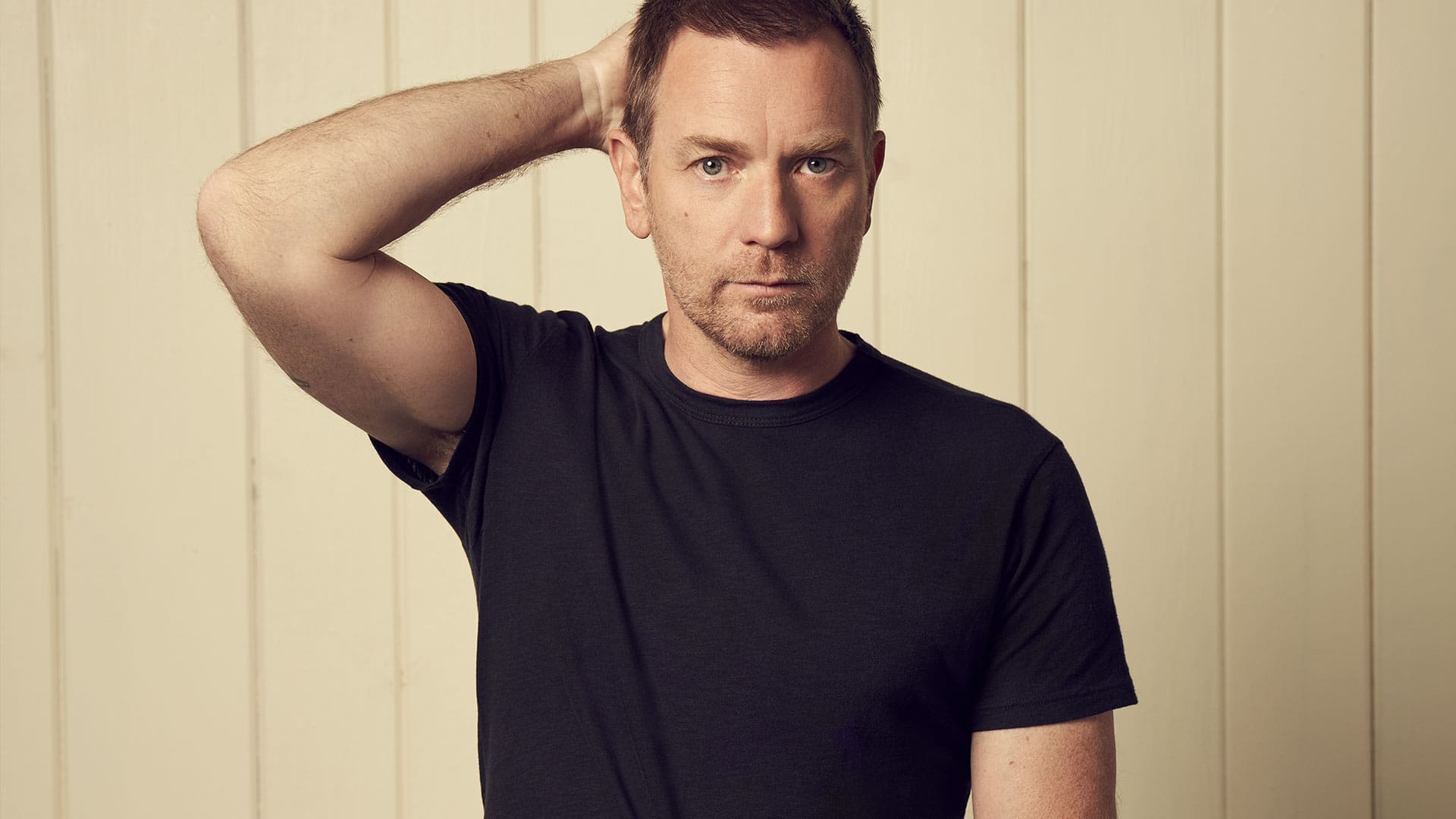In A Galaxy Far, Far Away with Ewan McGregor
Photo Shoot by Brian Bowen Smith
At age 10, in a galaxy far, far away, after sustaining a severe, traumatic brain injury, I spent most of my recuperating years making friends with the characters on TV, or in movies. At risk of photosensitive seizures, I only got a precious hour of television or film-watching a day. Those hours were critical, to put it lightly.
After the tiring weekdays of physiotherapy, occupational and speech therapy, I longed wholeheartedly to sit in the Colonial-style TV room with my grandad, Colin—at five o’clock on-the-dot—and pick the afternoon entertainment for the hour. Grandad’s choice, selected from the high stack of rickety VHS tapes, was always something British and feel-good (“because all good tellie is English tellie”, he’d say in his warm, gentle tone). My TV taste differed slightly. I wanted something escapist, where I could fly away on a spaceship, and imagine myself in some far away galaxy. Needless to say, Star Wars was always and will forever be my first choice from any VHS stack.
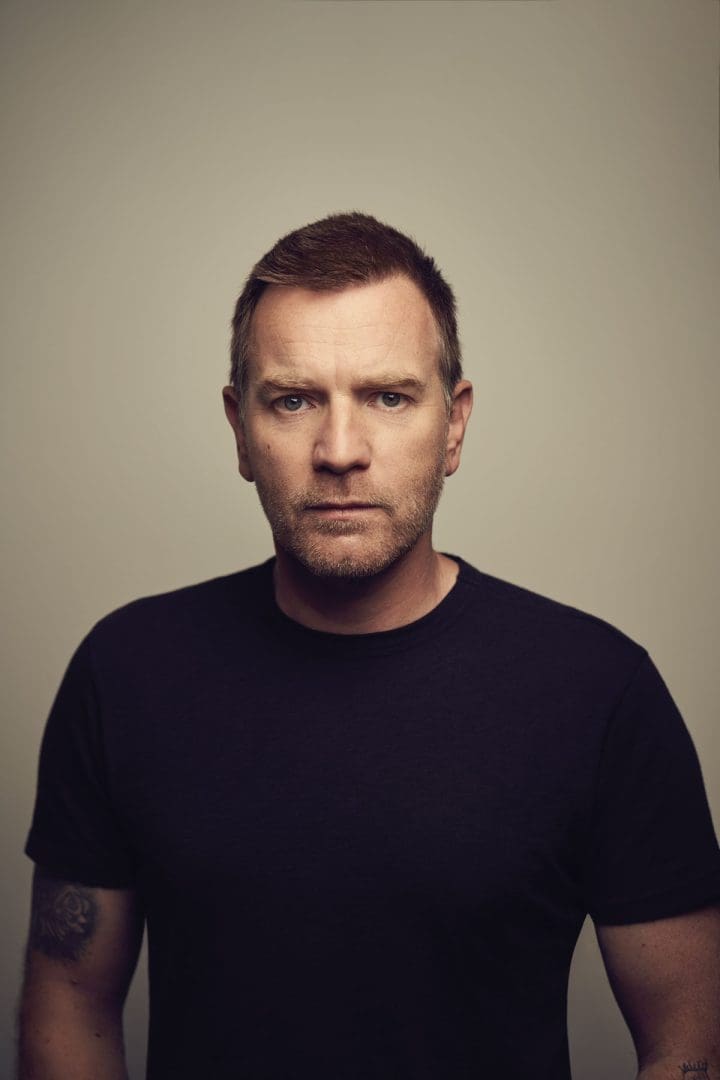
With every other 10 year-old kid from my generation, I loved watching the Jedi Knights take to the screen, defending the galaxy from the dreaded Sith. I dreamt of one day standing beside Qui-Gon Jinn as a fully-qualified Jedi Knight, blue lightsaber in my hands, fighting off droids and alien enemies, all in the name of peace and justice for the Republic. I wanted to be Ewan McGregor. The Wilson Home Child Rehabilitation Centre was, hoping to not sound too cliche, my own Republic and I strived to protect it, no matter the costs.
Almost 19 years on, I often reflect on the impact that Star Wars—and Obi-Wan Kenobi—had on my recovery. If not, I believe, for George Lucas’ amazing universe and Ewan McGregor’s portrayal of the padawan apprentice, I feel I wouldn’t have learnt crucial life lessons. Lessons like: committing to a life despite any type of adversity, believing in yourself no matter the odds, and not letting fear guide your path.
When M2 was given the opportunity to sit face-to-face with Ewan and talk about his journey reprising the iconic role for Obi-Wan Kenobi on Disney+, I felt like an over-excited child all over again. Minus the sore head, of course, I felt taken back to sitting in my wheelchair in the Wilson Centre, watching Ewan McGregor as Obi-Wan on the screen, imagining myself as a true saviour of some distant galaxy.
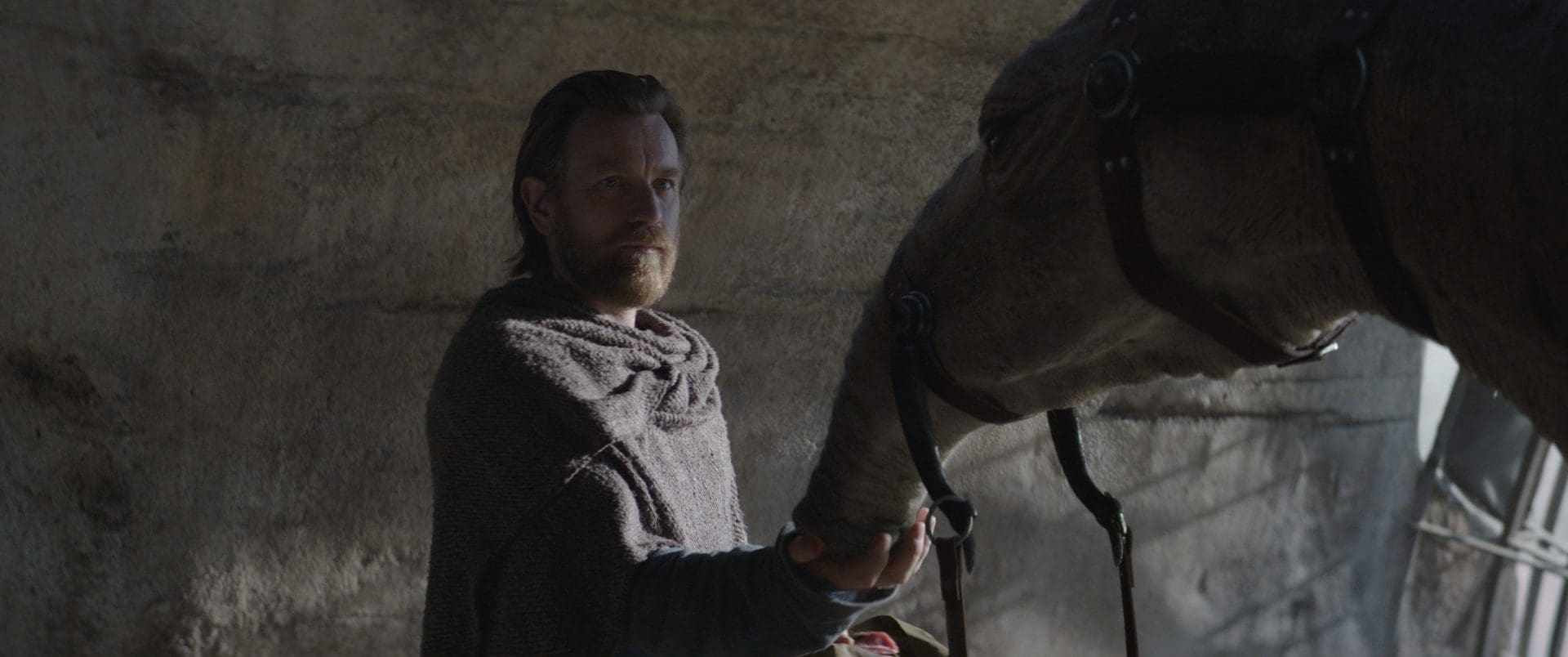
Born in Perth, Scotland in 1971 and later moving to nearby Crieff, Ewan McGregor was raised on modest beginnings with no initial dreams or ambitions to become Obi-Wan Kenobi at all. His uncle on his mother’s side, Denis Lawson, is an actor, most notably playing Wedge Antilles in the original Star Wars trilogy. Little did the young Ewan know that years later he would be joining the same franchise as one of the lead roles, Obi-Wan Kenobi.
So in 1987, at age 16, McGregor dropped out of school to follow in his uncle’s footsteps, securing a job working as a stage-hand at a local theatre and gaining small parts in their productions. Five years later, McGregor decided to pack his things and head 725km away to London where he applied for the class of ‘92 at the Guildhall School of Music and Drama. Within a few years, the Scot landed minor roles in television and made-for-TV arthouse films.
In 1994, McGregor gained his first major movie role as Alex Law in Danny Boyle’s award-winning Shallow Grave. Though the movie wasn’t as successful as they hoped it would be, it certainly gave McGregor the building blocks he used later in life to thrive as an actor. It also gave him one of his most important directorial contacts, one that was instrumental to his early career and skyrocketed McGregor to being a household name.
The year was 1996 and Ewan was tapped on the shoulder again by Danny Boyle to star as Mark ‘Rent Boy’ Renton in the dark-comedy drama Trainspotting. Even after all these years, the ‘choose life’ monologue at the opening sequence of the movie still rings in all our ears like a mantra. A psychedelic, drama-filled, darkly-comic film with tiny rays of light that shone over the characters. Chasing his next heroin high,, Renton (and McGregor) became a staple in popular culture. The narrator of the film, Rent Boy was a truly ambitious (and ambiguous) character for McGregor to sink his teeth into. The screenplay, based on the novel by Irvine Welsh, told through the protagonist’s observations of a crippling, economically-depressed Edinburgh society, took Ewan to a new height of fame. Ewan even won an Empire Award in 1997 as Best British Actor for that role, which he completely deserved.
For the next few years, McGregor continued to work on a number of films, such as Douglas McGrath’s adaptation of Jane Austin’s Emma or Todd Haynes’ Velvet Goldmine. He even took to the stage in 1998 in David Halliwell’s Little Malcolm and His Struggles Against the Eunuchs at London’s Hampstead Theatre, which received rave reviews. It was at the end of ‘98, however, he landed one of his most well-known roles to date.
Filling the shoes of Sir Alec Guinness in George Lucas’ massive Star Wars trilogy, McGregor embodied the younger version of Obi-Wan Kenobi like no other actor ever could. Playing a younger Obi-Wan, the mixed reviews were overshined by McGregor’s performance. Booting The Mummy out of the number one spot in the box office, and making slightly over USD$28 million on its first day, The Phantom Menace was an instant hit and made McGregor a global icon. Needless to say, fans worldwide were hooked. Three years later, Attack of the Clones came out to rapturous response. People lined the streets, dressed as Jedi Knights, blue lightsabers at the ready. And oh my days, when Revenge of the Sith was released, fans were too excited to find out the true identity of the infamous Darth Vader.
After putting down his lightsaber (for what he thought was) the last time, McGregor went on to achieve even more success in his life. He has picked up numerous awards (too many to list, really), and graced the screen with some of the finest actors.
Set ten years after the events of Episiode III: Revenge of the Sith, the series, Obi-Wan Kenobi is Ewan’s next acting endeavor, and it will surely be him at his finest. Stepping back into the shoes of the Jedi Knight, the series tells of the now Jedi Master on the sandy plains of Tatooine, protecting Luke Skywalker from an encroaching enemy force.
Leading up to Obi-Wan Kenobi’s release on Disney+ on 25 May, M2 got the brilliant opportunity to chat with our friend Ewan and talk to him about where Obi-Wan is headed in the series and how he approached playing the character again.
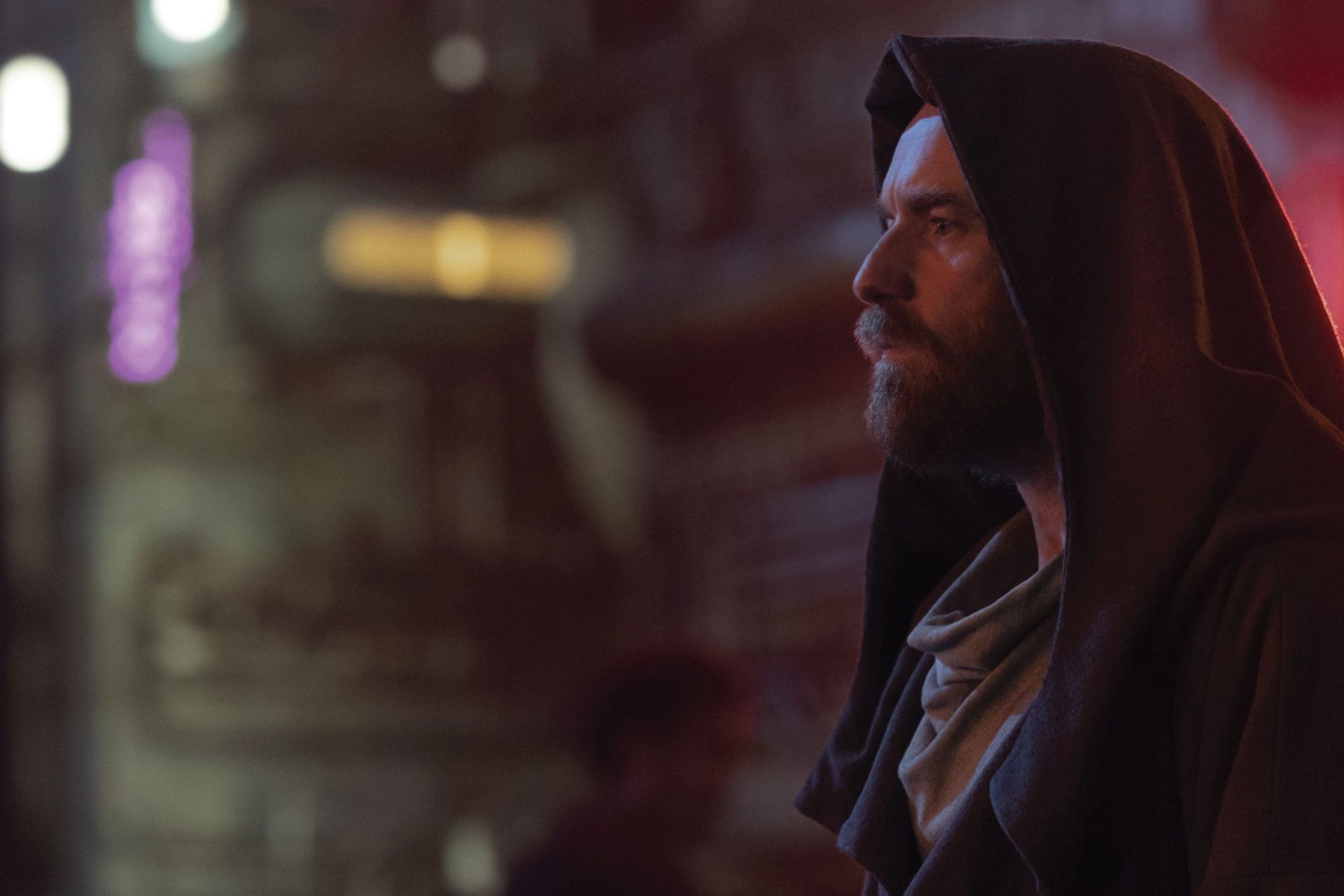
How’s your day going so far?
It’s been going really good. I work for Unicef as an Ambassador, so I’ve been able to do a couple of Zoom interviews to raise funds for the team over in the Ukraine. It was good to raise money for the kids they’re looking after over there. Where are you in the world?
I’m in Auckland, New Zealand.
People tell me New Zealand is quite like Scotland. I spent a lot of time in Australia when we were shooting the second and third Star Wars films. I also did Moulin Rouge! there. New Zealand is definitely on my bucket list.
We’d love to have you come over! You can crash on my sofa if you need a place to stay! So it’s been 17 years since Star Wars Episode III: Revenge of the Sith…How did it feel getting back into the Jedi robes as Obi-Wan Kenobi?
It sort’ve came about over a long period of time, to be honest. I think when we finished Episode III: Revenge of the Sith I wasn’t expecting to play him again. I enjoyed playing him; I loved being part of the folk-lore of Star Wars. But, to be honest, those films were quite difficult to make. There were a lot of green-screen and blue-screen to navigate, and it was hard to make the performance feel real and vibrant after three months of no sets.
At the end of Star Wars—when all things were said and done with my stint as Obi-Wan—I was happy to have done it. The three [Star Wars] films I was in unfortunately weren’t received very well and that was difficult for me. I didn’t like the fact that people didn’t enjoy them as much as I hoped they would. But then over the years, I realised that my perspective of it shifted too. I realised that I didn’t want Star Wars to define my career. I wanted to continue doing different and diverse roles.
As my career went by, I realised how important the George Lucas’ universe was to young people. The audience we made the films for were and still are the kids who were/are the same age I was when I first saw A New Hope. It’s generational. When I talk to those kids, they are like ‘Your films are our Star Wars…’ It’s so cool, man. As I started to realise that, it softened me a bit.
During interviews, I was being asked if I wanted to do Star Wars again and I found myself saying, ‘Yes, sure, why not?’ Media sort’ve exploded with headlines: “McGregor wants to do Star Wars Again”. Suddenly, I’m getting all these calls from Disney asking me to go in and meet them. I found myself sitting in these Disney offices and important people asking ‘…so is it true?’ And more and more I was saying yes.
I always thought that there’d be a cool story between Episode III: Revenge of the Sith and Episode IV: A New Hope. I was interested to explore it. At that time, I was also speaking to a lady at Lucasfilm called Kiri and she said that the beautiful thing about Star Wars is that it can be anything now. There are so many sides to it. We know where the world is, and that allows us to tell smaller stories about certain characters, or make big action films. It’s malleable and can be anything nowadays. I think that is so cool.
So then we started talking about where we could take Obi-Wan Kenobi. We wanted to take him to a dark place after Episode III. All the Jedi have been killed off and Kenobi can’t communicate using the Force because of the risk. He’s lost Anakin to the Dark Side; Padmé has passed away; there are these people called The Order of Inquisitors who are trying to hunt them down. He’s on Tatooine, and he’s just trying to live his best life not being a Jedi.
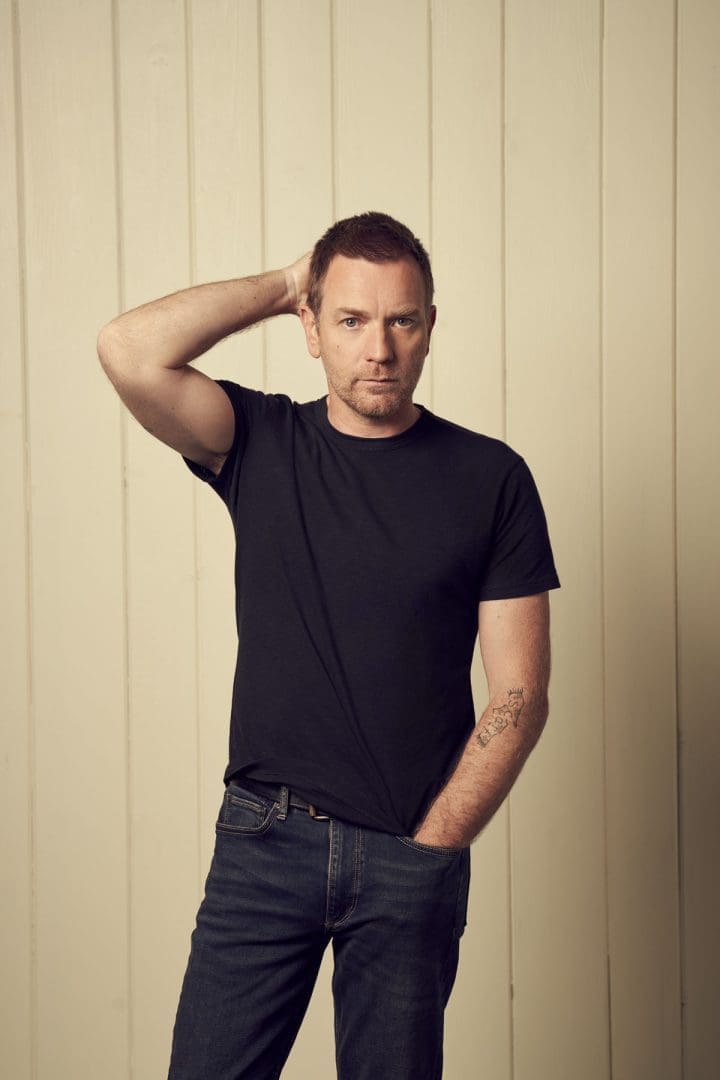
Did you have to research your own craft, or Sir Alec Guinness’ craft, to play Obi-Wan again? Or was it more like muscle memory—playing in the space—and he immediately came back to you?
I did both. I started with watching all the Star Wars films, starting with Episode I: The Phantom Menace and through to Episode IX: The Rise of Skywalker, as well as all the spinoffs. I also started reading a lot of science-fiction novels. There’s a Scottish writer I really like called Iain Banks, who wrote quite a well-known novel in 1984 called The Wasp Factory. He wrote sci-fi books too under the name Iain M. Banks—he wrote 10 highly-acclaimed sci-fi books as well as his mainstream fiction. I read a lot. I just wanted my mind to go back into that science-fiction world. And, of course, I watched a metric-tonne of Alec Guinness—Youtube, interviews, anywhere where he’s talking just to get his voice back in my head.
Because I’m also a producer on the show, I spent a lot of time with Deborah Chow, our brilliant director. She’d do all the work with the scripts and the writers, and I’d read a script and just say, ‘It’s great!’.
Then, like you said, it was really the case of imagining…Getting the costume on and getting back in there. It didn’t take too long. His voice took me a minute to find again but once I got that, I was off and running. I’ve watched Obi-Wan Kenobi and I’ve seen all the episodes and I’m absolutely stoked with it. I’m sure people will like it.
Looking at the trajectory of your highly successful, glowing career—from your roles in Shallow Grave, to Trainspotting, to Doctor Sleep, to Obi-Wan Kenobi—your love and passion for acting must still be there then…
Oh yes. I just love it so much. I’ve been so blessed to have had lots of experience in acting. The only time, really, I get nervous with acting is when I’m walking to the set and there’s an important scene or fight I’ve got to do. And two to three weeks before I start something, I’m not much fun to be around.
Recently I had to play Halston, the fashion designer, for a Netflix series, and he was someone who actually lived. Two weeks before we started [filming Halston] I was seriously like, oh f**k—I didn’t know if I could do it. As an actor, you sometimes forget that you don’t have to do the whole script all on the first day, and you get to explore a little bit at a time. Two roles that I loved playing were brothers, Emmit and Ray Stussy in season three of Fargo. It was amazing. What an opportunity to play two brothers with all those great actors!
With Obi-Wan Kenobi, after a lot of work and exploration, we came up with something truly amazing. There are so many nice moments between III and IV that the audience will like. I think the Star Wars fans will be really satisfied with it.
I’m sure we will be. Thank you, Ewan. And may the force be with you…
Thank you. This has been really fun. Yes, may the force be with you, always.

